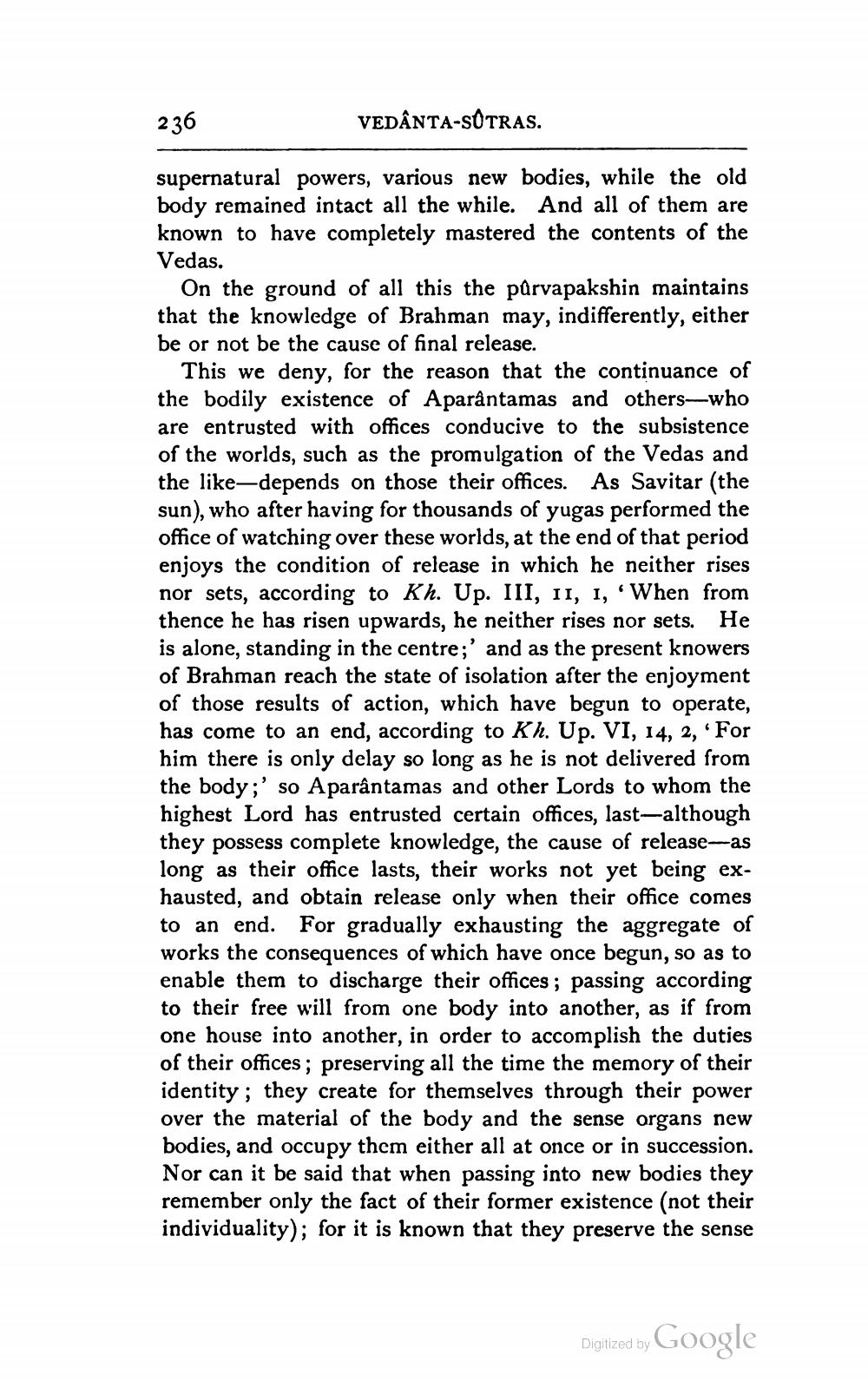________________
236
VEDÂNTA-SOTRAS.
supernatural powers, various new bodies, while the old body remained intact all the while. And all of them are known to have completely mastered the contents of the Vedas.
On the ground of all this the purvapakshin maintains that the knowledge of Brahman may, indifferently, either be or not be the cause of final release.
This we deny, for the reason that the continuance of the bodily existence of Aparantamas and others—who are entrusted with offices conducive to the subsistence of the worlds, such as the promulgation of the Vedas and the like-depends on those their offices. As Savitar (the sun), who after having for thousands of yugas performed the office of watching over these worlds, at the end of that period enjoys the condition of release in which he neither rises nor sets, according to Kh. Up. III, II, 1, "When from thence he has risen upwards, he neither rises nor sets. He is alone, standing in the centre;' and as the present knowers of Brahman reach the state of isolation after the enjoyment of those results of action, which have begun to operate, has come to an end, according to Kh. Up. VI, 14, 2, . For him there is only delay so long as he is not delivered from the body;' so Aparântamas and other Lords to whom the highest Lord has entrusted certain offices, last-although they possess complete knowledge, the cause of release-as long as their office lasts, their works not yet being exhausted, and obtain release only when their office comes to an end. For gradually exhausting the aggregate of works the consequences of which have once begun, so as to enable them to discharge their offices ; passing according to their free will from one body into another, as if from one house into another, in order to accomplish the duties of their offices; preserving all the time the memory of their identity; they create for themselves through their power over the material of the body and the sense organs new bodies, and occupy them either all at once or in succession. Nor can it be said that when passing into new bodies they remember only the fact of their former existence (not their individuality); for it is known that they preserve the sense
Digitized by
Digitized by Google




